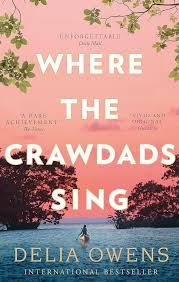4. School
bySchool, 1952, was a pivotal year in Kya Clark’s life, as she faced the daunting reality of being thrust into a world far removed from the one she had known in the swamp. Her life, up until then, had been one of isolation and solitude, with only the occasional fleeting visit from her father and minimal social interaction with anyone other than the creatures and natural wonders around her. One day, her world was shaken when an unexpected car arrived, bringing with it the truant officer, Mrs. Culpepper, and an unnamed man who told her they were there to take her to school. This moment marked the beginning of her exposure to the outside world, a world that felt foreign, intimidating, and disconnected from the comfort of the marsh she called home. Despite her fear and reluctance to leave the only life she had known, Kya was lured by the promise of a warm, hearty meal—chicken pie—which persuaded her to follow them.
With her father absent on his trip to Asheville, Kya reluctantly put on her best dress, the only one she had, and ventured into a world she could not fully understand. Upon arriving at the school, Kya was placed in the second grade, not because of any proper academic assessment, but due to the lack of formal records and the overcrowded nature of the school. She was surrounded by strangers, all of whom seemed to be familiar with the routines, expectations, and the social norms she had never learned. The sight of the classroom was overwhelming to Kya, and her anxiety was only heightened when she made a mistake while spelling “dog,” writing it as “G‑o-d.” The classmates’ laughter and whispers made her feel further alienated, and the rejection of her peers underscored the deep divide between her and the world she was now a part of, amplifying her loneliness and reinforcing the belief that she didn’t belong.
Yet, despite the sting of humiliation, Kya’s natural curiosity and desire to learn persisted. During lunch, she tried to find some comfort in the food, but the isolation she felt only grew. She sat alone, the other children either ignoring her or gossiping about her behind her back, heightening her sense of being an outsider. As the school day continued, Kya’s sense of alienation deepened, and the weight of her isolation became unbearable. The casual cruelty of her peers left an indelible mark, and she made the painful decision not to return. Kya was left with the strong, unspoken knowledge that school, and the society it represented, were not places where she could thrive. Instead, she retreated to the swamp, where she could once again immerse herself in the familiar and comforting world of nature that had always provided solace.
Kya’s longing for education did not fade, however, despite her rejection of the school system. The marsh had always been her true teacher, and it was in the solitude of the natural world that she continued to learn. Soon after her brief foray into formal schooling, Kya found herself injured, suffering a wound from a rusty nail. Fearful of the potential dangers, such as tetanus, and with no medical help available to her, Kya relied on the knowledge passed down to her through generations, using traditional remedies and the healing power of the marsh. This experience was a reminder of the harsh reality of Kya’s life—one that constantly pushed her to rely on herself, while the world around her remained indifferent to her existence. Despite these challenges, Kya’s resilience shone through, and the strength she derived from the natural world only deepened her resolve. She learned from the earth and its creatures, becoming more attuned to the rhythms of life around her. The chapter captures Kya’s profound isolation but also her self-reliance, her inner strength, and the quiet beauty of the world she inhabits, one that she continues to navigate on her own terms. Through this experience, the readers are shown not just her vulnerability but also her indomitable will to survive and learn, a testament to her resilience in the face of adversity.


